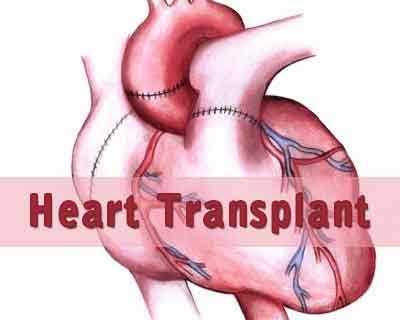- Home
- Editorial
- News
- Practice Guidelines
- Anesthesiology Guidelines
- Cancer Guidelines
- Cardiac Sciences Guidelines
- Critical Care Guidelines
- Dentistry Guidelines
- Dermatology Guidelines
- Diabetes and Endo Guidelines
- Diagnostics Guidelines
- ENT Guidelines
- Featured Practice Guidelines
- Gastroenterology Guidelines
- Geriatrics Guidelines
- Medicine Guidelines
- Nephrology Guidelines
- Neurosciences Guidelines
- Obs and Gynae Guidelines
- Ophthalmology Guidelines
- Orthopaedics Guidelines
- Paediatrics Guidelines
- Psychiatry Guidelines
- Pulmonology Guidelines
- Radiology Guidelines
- Surgery Guidelines
- Urology Guidelines
Absorb BVS has very good clinical outcomes in PCI : Study

Dr.Anne Venkata Ganeshkumar, a researcher at Department of Cardiology, Dr L H Hiranandani Hospital, India, and colleagues performed a study to determine medium-term and immediate clinical outcomes in patients undergoing percutaneous coronary intervention (PCI) with the Absorb BVS (bioresorbable vascular scaffolds) in the Indian context.
Drug-eluting stent (DES) is used for the percutaneous treatment of coronary artery disease but has an ongoing risk of stent-related complications because of permanent implantation of a foreign body and restriction of vascular vasomotion. Because of these limitations, BVS was designed to provide mechanical support and drug delivery similar to the DES, followed by complete resorption over several years.
Rates of major adverse cardiac events (MACE) following the use of BVS are comparable to that noted with traditional drug-eluting stents (DES), as evident from the previous studies conducted on the same. However, not much was done to determine immediate and medium-term clinical outcomes that result from the use of Absorb BVS.
The study involved evaluation of data of all those patients who were treated with Absorb BVS at the research center. 142 patients underwent PCI with BVS. The MACE rates during hospitalization, at 30 days, 3 months, 6 months after PCI, and every 6 months thereafter were the primary endpoints evaluated with median follow up of 13 months. Mean age of the study participants was 53.7 ± 11.8 years. Intravascular ultrasound imaging was performed in 15.34% of patients. Predilatation and post-dilatation were performed in 81.8% and 84.6% of scaffolds, respectively
The researchers found out that there were no episodes of MACE during hospitalization. However, 1 BVS-related MACE was observed at the 1-month (0.7%) as well as at the ≥12 month (0.8%) follow up visits. At the 6- and 12-month follow up visits, 2 (1.5%) and 3 (2.5%) non-BVS-related MACEs, respectively, were recorded.
The researchers concluded that the use of Absorb BVS in this real-world experience was associated with very good immediate and medium-term clinical outcomes. The study has been published in Indian Heart Journal.
For more information click on the link: http://dx.doi.org/10.1016/j.ihj.2017.06.0160019

Disclaimer: This site is primarily intended for healthcare professionals. Any content/information on this website does not replace the advice of medical and/or health professionals and should not be construed as medical/diagnostic advice/endorsement or prescription. Use of this site is subject to our terms of use, privacy policy, advertisement policy. © 2020 Minerva Medical Treatment Pvt Ltd